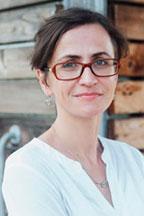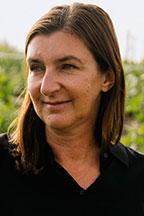T’aint Just Smoke Taint
January 24, 2023
9:30 am - 10:45 am
T’aint Just Smoke Taint
Environmental factors that can influence the way a grape or wine can taste are all around the vineyard. These range from climate-change based factors like smoke and frost to agricultural factors like neighboring cannabis or hopyard influences. Top researchers on the topics are on this panel to update us on the chemical reactions that happen. Covered taint topics include Frost, Smoke, Cannabis, Hemp, Hops, Eucalyptus, Cork, Pyrazines, and Lady bug.
Speakers


Scott Frost is a sensory scientist and flavor chemist with Tufts University. His research explores how food preference and choice is influenced by production practices. After receiving his Master of Science from UC Davis, Scott ran a winery lab in California. This experience sparked his desire to understand how wine production can influence flavor chemistry. Since completing his Ph.D., he has worked on various food and beverages including wine, coffee, cheese, and beer.


Andreea Botezatu
Organization:
Texas A&M Agrilife Extension, College Station
Sessions:
Dr. Andreea Botezatu received her Honors Bachelor degree in Horticulture, majoring in Oenology from the University of Agronomy and Veterinary Sciences “Ion Ionescu de la Brad”, Iasi, Romania in 2000 and her Masters degree in Agricultural Management from the same university in 2001. From 2000 until 2006, Dr. Botezatu worked as commercial winemaker in Europe and Canada. She obtained her PhD (Oenology) in 2013 from Brock University in St. Catharines, Canada where she then held a postdoctoral position from 2013-2015.
In 2017, Andreea joined the faculty of the Department of Horticultural Sciences at Texas A&M University, as Assistant Professor and Extension Enology Specialist. Her mission is to serve the Texas winemaking industry through applied research as well as through developing educational opportunities for current and prospective winemakers.


Alisa Jacobson
Organization:
Turning Tide Wines, California
Sessions:
A Focus on the Future: Trends and Opportunities from Across the Globe, T’aint Just Smoke Taint
Owner, winemaker, environmentalist, and outdoor enthusiast Alisa Jacobson “AJ” founded Turning Tide Wines in 2018 under her company name, Wines by Alisa Jacobson, with the goal of showcasing the true essence of the grapes she harvests, respecting the elements each vineyard site provides, and helping Turn the Tide toward more sustainable and eco-friendly practices in vineyards and winemaking round the globe.
Her first Turning Tide wines were released in December of 2020, all showcasing eco-friendly farming and business practices. A year later, Jacobson (who goes by “AJ”) added “AJ”, “Rare North” and “Avec Moi”, all high-quality, sustainable, and value-driven wine brands.
A graduate of UC Davis with a degree in viticulture and enology, AJ has produced California sparkling wine, made Shiraz in Australia (while diving along the Great Barrier Reef), and worked at Joseph Phelps where she met Joel and Sarah Gott. Jacobson rose to the rank of VP of Winemaking, overseeing a team of 35, and managing all winery and vineyard operations throughout California, Oregon, and Washington, as well as international projects all over the world. She passed the baton back to Joel and Sarah Gott in 2020 and set out to forge her own path with a renewed and passionate focus on making wine from organic and sustainably-farmed vineyards in coastal regions of California and Oregon.
AJ assumed a lease on an iconic winery in Santa Ynez Valley in August of 2022. This is now where AJ makes her “Made with Organically Farmed Grapes” Avec Moi and Turning Tide wines, both labels certified organic. The winery project has been named Milestone for its commitment to regenerative and organic farming and winemaking practices. She adheres to strict organic and vegan only winemaking practices at Milestone and makes wine from her two vineyards she owns in the Santa Ynez Valley..
Dedicated to her cause of trying to help the wine industry become more sustainable and climate-forward, AJ also serves as Co-Chair of the Unified Grape and Wine Symposium Program Development Committee, the Chair of the Research Committee of the West Coast Smoke Exposure Task Force and a number of wine industry advisory boards, all to further her passion for education outreach and to raise awareness for global climate change impacts —and of course, to help Turn the Tide on how vineyards are farmed around the globe by way of outreach and education. AJ believes that by demonstrating the success and quality of wines made by organically and sustainable vineyard practices, she can inspire and provide examples to others on how to be more climate pro-active.
